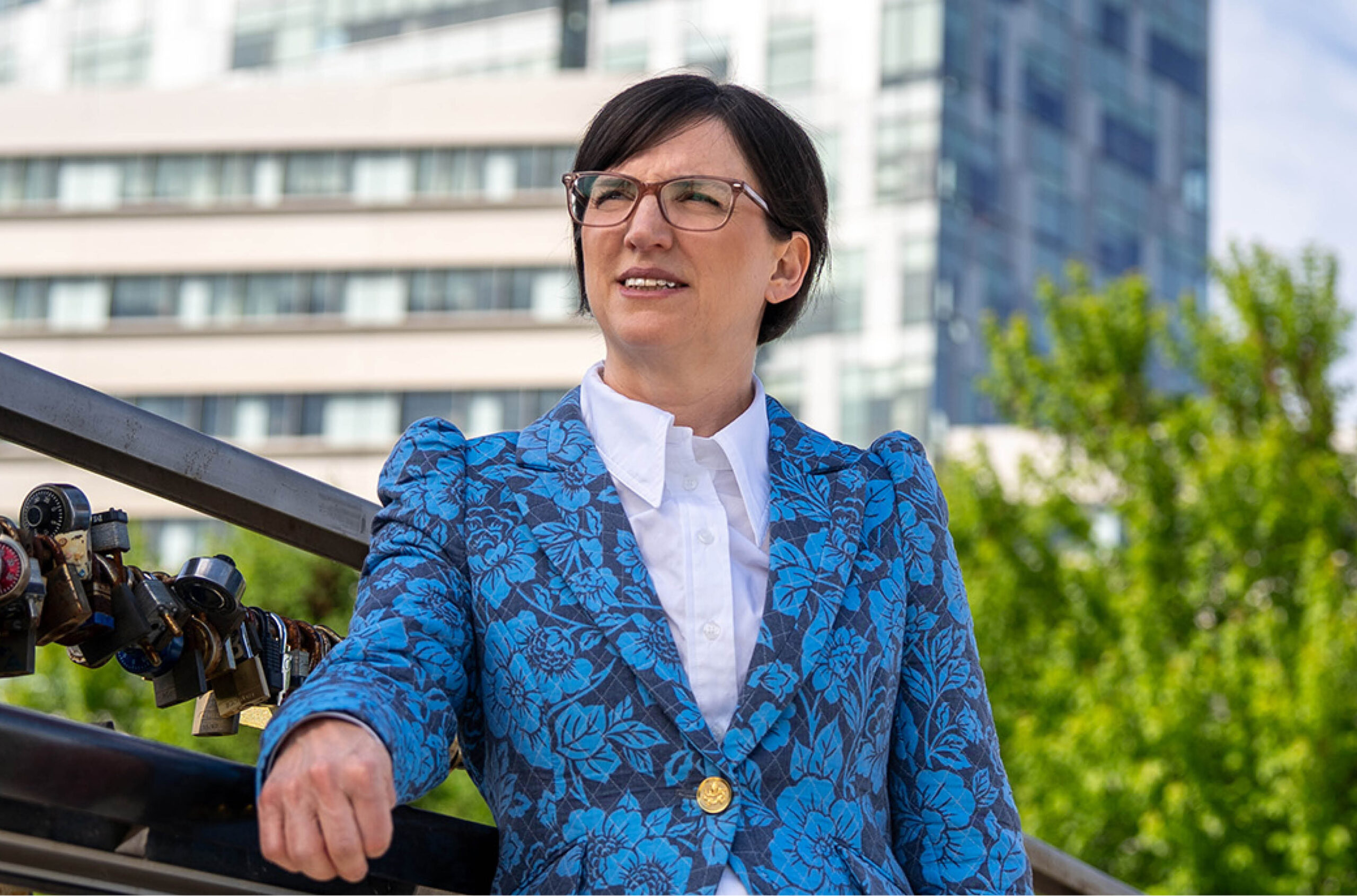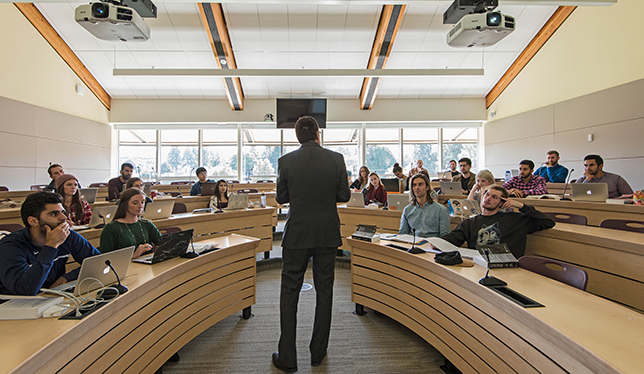Leigh Lane Peine is the senior director of marketing and client solutions at Educational Credential Evaluators Inc.
The fraud problem: how Educational Credential Evaluators is helping to stop forged documents
From catching fake websites to detecting incorrect diploma seals, their years of experience are interrupting a prevalent practice.

While AI-powered technologies like ChatGPT and “deep fakes” are making it harder and harder to discern what’s real, the education industry has been grappling with that problem since before the first computer was ever plugged in.
“Some of the earliest references to fraudulent documents go all the way back to the 19th century,” says Majka Drewitz, senior manager of evaluation staff at Educational Credential Evaluators (ECE®). “While the problem has always been around, the motivations are what change.”
Educational credits and documentation are used for gaining employment, advanced degrees, entrance to universities abroad and more. But before students can be accepted, their documents have to be evaluated.
ECE has provided assessment services to institutions for over 40 years, first across the U.S. and now in Canada, to help vet and monitor the veracity of applicant documents.
With over 400 years of combined experience across their multilingual, international staff, ECE is one of the most trusted names in credential assessment – but that’s only the result of constant vigilance and, because of the prevalence of the problem, a great deal of practice.
“We catch about five to 10 [fraudulent documents] a month,” says Meg Wenger, senior director of evaluation at ECE. “That’s why we create document requirements and have strict rules on how you apply and submit documentation.”
Assessors at ECE offer an in-depth level of knowledge and attention to detail that’s crucial for their field – having caught fraudulent documents that use “fake” URLs (which may only differ by one letter from the actual institution, but lead to a perfect recreation of their site), incorrect seals and stamps on diplomas, even noticing a difference in the scent of the glue used on some documents.
“Glues from certain countries smell different,” says Ms. Drewitz. “So that can tip us off.”
In a recent survey conducted by the U.K. National Information Centre (U.K. ENIC) for global qualifications and skills, 75 per cent of university admissions staff reported that they “did not feel confident” in spotting fake qualification documents without assistance. The same survey stated that 14 per cent of institutions did not verify overseas documents at all.
“We do see [fraudulent documents] from certain countries,” says Ms. Wenger. “But no country is immune to the problem. That’s why we developed a program that helps train people on how to evaluate documents correctly, in the U.S. and abroad.”
One of the most recent examples of the type of rampant fraud they’re fighting came from three South Florida nursing schools that produced “potentially thousands of nurses” working with bogus academic credentials. Each student was reportedly charged between $10,000-$17,000 for a diploma, without requiring any training or supporting documentation.
The Kenya National Qualifications Authority (KNQA) reported at least one out of every three people employed in the country’s civil workforce had a fake academic certificate. In the U.S. a study reported “at least three percent of all doctorate degrees in occupational safety and health and related areas” are fraudulent.
In 2013, reporters from the BBC were able to acquire a degree for a dog with nothing more than an application and required payment. While hilarious, it gets decidedly less amusing when they discovered hundreds of people touting their degrees from the same institution on social media – including a “senior nuclear industry executive who was in charge of selling a new generation of reactors in the U.K.”
It’s a staggering series of stories that still only account for a fraction of what could be happening – and “could be” is an important distinction, as no one can truly know the impact of the issue.
So why aren’t institutions doing more to vet their documents?
“It’s actually a combination of factors, including a lack of resources and a lack of awareness. But that’s why we share information,” Ms. Drewitz explains. “It’s partly our job to educate and teach institutions that they can’t immediately trust the documents they receive.”
When it comes to spreading that awareness, spotting falsified documents takes a keen eye and a deep knowledge of each country’s standards. One of the first things to know is how to determine if an institution can be trusted.
Diploma mills “are a case where it’s not a fake document, but it’s awarded by an institution that has no educational value,” says Ms. Wenger. Diploma mills (and often accreditation mills) can mimic similar legitimate institutions, often by slightly adjusting their name. “Maybe they have a website with a campus picture, but that’s it. Those are the most elusive type, because when they’re caught, they just create a new website. But if you do a little digging, you can discover that many of these URLs have the same owners.”
Another way ECE is helping to stop repeat offenders is as a charter member of the National Association of Credential Evaluation Services (NACES), a trade association of like-minded credential assessors.
Applicants who are caught by one member of NACES are entered into a database where they will be ineligible for re-review for five years, making it less likely that they can take their false documents to other, less-discerning institutions.
So with all this in mind, what’s the next best step for institutions wary of having a proverbial fast one pulled on them? Funnily enough, it’s education.
“You don’t have to be an expert, but there are resources out there that can help you verify credentials,” says Ms. Drewitz. “For institutions, it’s crucial to train your people. For employers, make sure there’s a process you can rely on that can provide trustworthy answers for you. [ECE] makes those resources available, and we’re passionate about what we do.”
To learn more about ECE and their educational credential assessment reports or to find out how you can train your staff to identify possible fraud, visit ECE.org.




Post a comment
University Affairs moderates all comments according to the following guidelines. If approved, comments generally appear within one business day. We may republish particularly insightful remarks in our print edition or elsewhere.